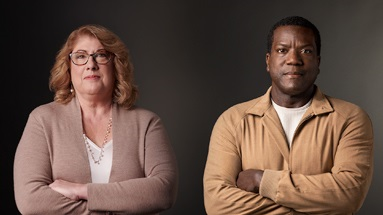Family history matters — and not just for cancer prevention
Family history matters — and not just for cancer prevention

When it comes to cancer, family history may be one of the first questions that comes up when you speak with your doctor. If you’re living with cancer, knowing your family history and sharing it with your healthcare provider may help with deciding on a treatment plan. In fact, genetic testing is increasingly being incorporated into cancer treatment plans to better understand the unique biology of each person’s cancer.
These tests use blood or saliva to find out if there are any genetic mutations in your family that may lead to higher risk for certain cancers. Knowing that your cancer is associated with a certain gene mutation may give your care team critical information that can help them decide on the most effective treatment plan for you.
Many parts of your cancer journey may feel outside your control. But understanding and sharing your family history is one area where you may feel like you can have a direct impact.
Cancer isn’t directly passed from parents to children. Instead, certain genetic mutations and abnormalities can be passed, which is why it can sometimes seem like cancer runs in families. For instance, one of the most well-known genetic predispositions (increased chance of developing cancer based on genetic makeup) involves the BRCA1 and BRCA2 genes, which are associated with breast and ovarian cancers.
Gathering your family history can also have benefits that go beyond practical questions of treatment. Knowing that others in your family have been on a similar journey may be a meaningful part of your own journey. This may help you come to terms with your own experience. You may also feel closer with family members who can relate to your experience and uncover information that can help your own immediate family take preventive steps to reduce their own cancer risk.
If you’re not sure how to get started, there are some aspects of family history that may be important for your doctor to know. For example, if you have relatives under 50 who were diagnosed with cancer of the womb (uterus), breast, or bowel. Or instances where two or more relatives on the same side of your family were diagnosed with these cancers.
Additionally, it may be important to mention any female relatives diagnosed with ovarian cancer or male relatives diagnosed with breast cancer. If you have Eastern European or Ashkenazi Jewish ancestry, this could also be relevant to your medical history.
A good guiding principle is: the more you share with your doctor, the better. Even if you think a piece of information might not be relevant, it can still be a good idea to share it. “If it’s not important, it’s not important. But we’ll still put it down on the list,” Dr. Ricks said.
Here are some Microsteps that can be taken to help gather and document your family history. As always, speak with your care team for the guidance and recommendations that are best for you.
Inviting your family members to help you create a shared family medical history.
You don’t have to do it alone, and others in your family may have information you don’t. Creating a shared document — either online or in a notebook — will allow others in your family to share information about your family history. The document can be added to as new information is found or remembered.
Choosing the right moment to collect family history.
Instead of reaching out one by one, you may be able to gather useful information at family get-togethers or on a dedicated Zoom call, where lots of people are together. These occasions can provide a relaxed setting for conversations about health and things your family has gone through, and you might gather details from several family members in a single discussion.
Searching online obituaries for information about your relatives’ cancer history.
Knowing the age and cause of death of family members that have passed away can be important. Searching online for obituaries or even getting death certificates may provide you with useful information to share with your doctor.
Downloading a family history app to help you stay organized and make updates.
Apps like My Family Health Portrait: Cancer can help you compile, store, and look at your family’s cancer history in one place. These tools allow you to see which family members had cancer, which cancer they had, and how old they were at diagnosis. You can share this overview with your healthcare team — and update your family history as new information becomes available.
Developed with Thrive Global













